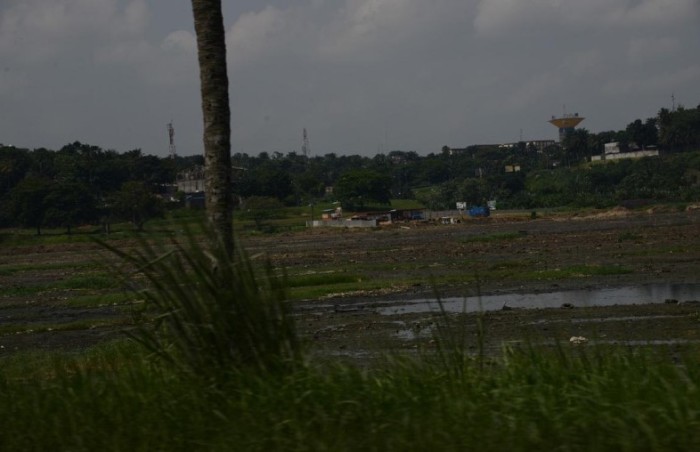Ivorian President Alassane Ouattara has received a United Nations report detailing decades of environmental destruction in the country, especially during 11 years of civil war and political turmoil. The presentation was made to Mr President in Abidjan, the capital city, on Friday.

Ouattara’s government came to power in 2011 and asked the United Nations Environment Programme (UNEP) for a post-crisis environmental impact assessment of the country.
“We thought it appropriate for the government to have some idea of the changes that have affected the diverse environmental ecosystems of Côte d’lvoire for more than half a century,” Remi Allah-Kouadio, minister of the environment, urban sanitation and sustainable development, says in the report’s foreword.
Following the request, UNEP conducted a desk study and remote sensing analyses of the country’s environment; then agreed with the government on the scope of fieldwork to be undertaken. Fieldwork began in June 2013.

The assessment covered the environmental factors that had direct or indirect connections to the 2001 civil war, which pitted supporters of Laurent Gbagbo against those of Ouattara over Gbagbo’s refusal to step down after losing the 2010 presidential election.
The 157-page report covers forests, including those classified, and national parks; environmental degradation of the Ébrié Lagoon adjacent to Abidjan; environmental concerns related to unplanned urban expansion; industrial and artisanal mining and their environmental footprint; and the risk of oil spill along the nation’s coastline.
Key Findings
UNEP’s assessment found significant degradation of forests; the loss of flora and fauna in all national parks affected by the conflict; the doubling of Abidjan’s population; the slowdown in the mining sector and the ill-health associated with artisanal mining; as well as pollution of the Ébrié Lagoon.
The state of the lagoon and the possibility of offshore oil spills are of concern to the Abidjan Convention, whose brief is to work with coastal countries in the sustainable management of the coasts, ocean, their resources and environment.
Abidjan’s population doubled to five million during conflict. This led to the deterioration in urban services, increased water pollution, inappropriate disposal of hazardous and municipal waste, severe land degradation, and other environmental problems.
The Lagoon, from which Abidjan had drawn much of its reputed lustre in bygone years, has been degraded due to disposal of liquid and solid waste, and unplanned land reclamation. Today, the lagoon, which empties into the Atlantic Ocean through an opening of the Vridi Canal is unsightly and foul smelling, although a modest cleanup operation has begun.
“There is evidence of heavy metal and pesticide pollution in the fish in the Ébrié Lagoon which needs to be addressed as a matter of priority,” UNEP says in its report published in July.
Oil Spill Risk
Offshore oil production in Côte d’Ivoire began in the late 1950s, with proven reserves of 100 million barrels in 2011, according to the report. The risk of offshore oil spill comes from this activity and from the present high degree of ship traffic in the area.
Meantime, the report says, the nation’s capacity to deal with an oil spill has been degraded, due to the wartime looting and destruction of laboratories at the Ivorian Anti-pollution Control Centre, CIAPOL.
Recommendations
Human activity accounts for just 10 per cent of the severe pollution of the Ébrié Lagoon, according to the report. This means the lagoon could recover, UNEP says, and become an engine for Abidjan’s economic revival. A rejuvenated lagoon could offer opportunities for commercial and artisanal fishing, recreation, fast and efficient water transport, tourism, and a waterfront worthy of the region’s economic hub. For this to happen, UNEP recommends that the government remove accumulation of pollution, prevent further encroachment onto the lagoon, control or stop use of it as a waste dump.
“Recovery would make an immeasurable difference to live of Abidjan citizens,” UNEP says.
Abidjan could reclaim its title as the “Pearl of the Lagoon”. As part of the lagoon’s recovery, UNEP says the unstainable growth of Abidjan must be reversed. The city’s growth had been driven by fear during the civil war. Now the city has depleted groundwater, poor water supply infrastructure, sanitation and waste management, education, and healthcare.
“It is possible to restore Abidjan‘s former environmental quality even with its current population of five million but resources needed to do so would be vast,” UNEP says in the report.
The Abidjan Convention is a legal tool for Cooperation in the Protection and Development of the Marine and Coastal Region of West, Central and Southern Africa.
